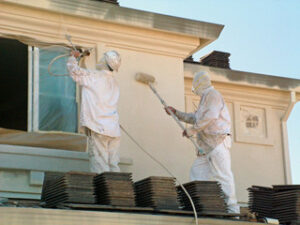Maryland Accident Attorney will help you get compensation for your injuries and property damage. An experienced car accident lawyer can negotiate with insurance companies and ensure you don’t settle for a minimum salary.
They will also help you claim non-economic damages such as pain and suffering. They should be comfortable taking your case to trial if necessary.

A well-trained accident attorney understands car accident injury claims and how to maximize compensation for a client. They have a wealth of resources to help them investigate evidence, evaluate losses, and build strong cases. They can use their negotiation skills to get a satisfactory settlement or, if necessary, take the case to trial.
When hiring a car accident attorney, consider their track record. A good lawyer has a history of successfully handling similar car accident claims and a strong reputation in the community for client satisfaction. They also have a fee structure that prioritizes their clients’ needs, such as offering a free case evaluation and not charging upfront fees.
Experienced car accident attorneys deeply understand how insurance companies work and the tactics they employ to deny or lowball claims. They will develop a legal strategy to ensure you receive the maximum compensation for your medical bills, economic damages and property damage. They will also work with the liable driver’s insurance company to negotiate a fair settlement on your behalf.
An experienced car accident attorney will know how to conduct a thorough investigation of your accident and gather critical evidence such as police reports, witness statements, and video surveillance footage. They will then build a strong case proving negligence on the part of the at-fault party.
They can assess all aspects of your loss and calculate the appropriate amount of compensation to cover past and future medical expenses, lost income due to missed workdays, property damage, pain and suffering and emotional trauma. They may subpoena healthcare providers for certified records of your treatment and expenses so they can be presented at arbitration or trial.
Unless you have extensive legal training, it is not in your best interests to represent yourself in a car accident case. The law is complex and it’s unlikely that you will be able to negotiate with the insurance company on your own, much less win a large payout. An experienced car accident attorney will be able to get you the money you deserve without having to step foot in a courtroom.
Knowledge of the Law
A competent accident lawyer knows what evidence to gather, how to build a strong case, and how to negotiate with insurance companies. They also understand relevant court procedures and successful legal strategies. They can use this knowledge to negotiate a fair settlement and, if necessary, take the case to trial.
When building a claim, an experienced attorney considers all of a client’s losses, including past and future medical treatment costs, property damage, loss of earnings, pain and suffering, and emotional impacts. They also assess how the accident will affect a victim’s quality of life, and can project the cost of care to help them receive maximum compensation.
A good car accident injury attorney has a solid track record and a reputation for success. This helps them get the attention of opposing parties and judges, and can improve their chances of a favorable outcome in court. They also have a network of resources and connections that they can leverage in their cases, such as medical professionals and accident reconstruction experts.
They have a deep understanding of car accident laws, including traffic law violations and the impact of comparative negligence laws on potential damages. They can also review medical records and establish a link between their client’s injuries and the accident to strengthen their causation argument. They can even conduct a crash investigation on their client’s behalf to determine what happened and how the accident occurred.
An experienced car accident injury lawyer can help victims avoid costly mistakes that could hurt their case, such as giving an oral or written statement to an insurance company representative without consulting a lawyer first. A competent lawyer will also ensure that all the necessary documents are filed correctly and on time to prevent procedural barriers from arising in the case. They can also guide victims through the litigation process, ensuring that their rights are protected at every stage. They can also negotiate with the defendants’ insurance companies to reach a satisfactory settlement. In some cases, the attorneys at Leav & Steinberg LLP will take the case to trial to fight for their clients’ right to fair compensation.
Knowledge of Medical Treatment
Medical treatment is a vital part of the car accident recovery process. It enables individuals to receive the care they need for their injuries, which is essential to their physical and financial well-being. Individuals who don’t seek treatment for their injuries can suffer from chronic conditions that significantly impact their quality of life.
Despite the trauma of a car accident, many people fail to prioritize immediate medical care. The reasons for this vary, from prioritizing repairs and insurance claims to focusing on mental health and other concerns. This is why it’s important for everyone to be open and honest with their healthcare providers. It allows them to build a complete picture of your symptoms, including those that may seem minor at first glance. Withholding information or downplaying your pain can lead to an inaccurate diagnosis and sub-optimal treatment, which can negatively impact your recovery and any legal claims related to the accident.
It’s also important to keep up with your healthcare appointments, especially if your doctor refers you to specialists. This can help you recover faster and improve your overall health. It can also support your claim by documenting the extent of your injuries, allowing you to prove that you’ve suffered significant losses.
In addition to the physical and financial costs of medical treatment, your lawyer will take into account any emotional impacts from the accident, such as PTSD or anxiety. They will consider the ways that your injury has impacted your quality of life, including any inability to work or participate in activities that you enjoy.
Your attorney will ensure that all of your medical documents are carefully reviewed and organized, ensuring that the necessary evidence is provided to support your claim. They will also analyze the details of the accident, including a visit to the scene to make observations and gather any available evidence. They will then review your medical records and assess the physical and financial impact of your injuries, calculating any damages you’re entitled to receive. If your lawyer believes that the insurance company is trying to minimize your claim, they will take action.
Knowledge of Insurance Companies
A skilled car accident attorney has a thorough understanding of insurance laws. They know the nuances of policies, coverage limits and how to negotiate with insurance companies to maximize compensation for their clients. They also work with accident reconstruction specialists to examine evidence and determine who was responsible for the accident.
An experienced attorney knows how to gather and document all the information relevant to your case, including medical reports, police report, vehicle damage and other documentation. They also know how to analyze the impact of the accident on your physical and emotional well-being, which can be a major factor in the amount you receive for damages. They will also have a thorough understanding of state and federal law, which may impact your rights as an accident victim.
Insurance companies are in the business of minimizing payouts and maximizing profits, which means they will scrutinize everything you say during the settlement process. They will try to get you to admit fault or provide statements that can be used against you. Your lawyer will help you navigate these conversations and ensure that you do not disclose any information that could jeopardize your claim.
While it might seem tempting to file a claim without an attorney, this can be a big mistake. Insurance companies have experience and resources that you do not, which can lead to lowball offers and rejections. Hiring an attorney levels the playing field and gives you the best chance of securing the settlement you deserve.
When choosing an attorney, look for a firm that has a proven track record of success. Consider the length of time they have been in practice, how many cases they have handled and what their clients’ experiences were like. Ask about their fee structure and whether or not they offer an initial consultation for free. They should be willing to put your needs above their own, which might look like offering a contingency fee or working on a flat rate instead of hourly. Finally, make sure the attorney has a wide network of professionals that they can draw on for support, such as accident reconstruction experts and medical professionals.


